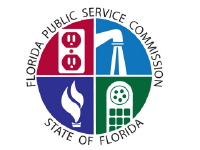Duke Energy Rate Deal Approved
 With backing from representatives of consumers and businesses, the state Public Service Commission on Tuesday unanimously approved a settlement that will increase base electric rates for customers of Duke Energy Florida.
With backing from representatives of consumers and businesses, the state Public Service Commission on Tuesday unanimously approved a settlement that will increase base electric rates for customers of Duke Energy Florida.
Duke reached the settlement early this year with the state Office of Public Counsel, which represents consumers, and major electricity users after months of negotiations. The settlement would lead to about $195 million in rate increases over three years.
“This was a massive undertaking to have reached a settlement agreement,” commission Chairman Gary Clark said.
Base rates make up a large portion of customers’ monthly electric bills and can spur lengthy, contentious disputes when they are changed. Duke is operating under a 2017 settlement, with the newly approved plan slated to last from 2022 through 2024.
The plan, in part, includes base-rate increases of $67.246 million in 2022, $48.933 million in 2023 and $79.199 million in 2024, for a total of $195.378 million.
Duke, which has more than 1.8 million customers in the state, said in January that average residential customers would see bill increases of 3 percent to 4 percent in 2022, while non-residential customers would see increases of 1 percent to 6.5 percent. All customers would see annual increases of 1 percent to 2 percent in 2023 and 2024.
As a measure of the interest in the issue, participants in the case included the Florida Industrial Power Users Group, which includes large industrial customers; PCS Phosphate, which consumes large amounts of electricity at its operation in Hamilton County; Walmart, which has dozens of stores served by Duke; and Nucor Steel Florida, which operates a plant in Polk County.
Anastacia Pirello, an attorney with the Office of Public Counsel, said the settlement is the “best overall outcome” for consumers. For example, Pirello and Jon Moyle, an attorney for the Florida Industrial Power Users group, pointed to part of the settlement that reduces the amount of profit Duke will be allowed to earn.
That issue involves an allowed return on equity, a closely watched measure of profitability. The settlement will allow Duke to have a return within a range with a “midpoint” of 9.85 percent. That is compared to Duke’s current midpoint of 10.5 percent --- a change that Pirello and Moyle said could save about $200 million.
“It’s a great opportunity for ratepayers to make some considerable savings,” Moyle said.
Duke officials said they think the agreement is fair and will help meet the utility’s needs.
“We believe firmly that it is in our customers’ best interest and provides the necessary financial infrastructure to allow the company to deliver on what our customers have come to expect from us --- safe, reliable and increasingly clean energy,” Melissa Seixas, the utility’s state president, told the commission.
Article reposted with permission from The News Service of Florida.
 Enter your email address in the
Enter your email address in the 